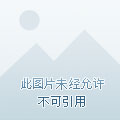He was originally the commander of the Nationalist Army, but he revolted because he was not reused, and he was later appointed as the deputy commander of Ichino, and missed his rank
During the revolutionary period, most people wanted national reunification, and some kuomintang members thought the same thing, but Chiang Kai-shek's insistence on fighting a civil war had achieved his dictatorial goals. Our Party certainly disagreed, and even the Kuomintang generals opposed it, so in the War of Liberation a large number of Generals of the Nationalist Army led an uprising and joined the people's army.

The more famous ones are Chen Mingren, Tao Zhiyue and others, and the person I want to talk about today is also an uprising general, although the fame is not as good as Chen and Tao, but the official position is higher than both of them, and he became the deputy commander of Yiye, and the commander is General Peng.
His name was Zhao Shoushan, and he had earlier served as a soldier in the Northwest Army, and Feng Yuxiang was defeated in the Jiang Feng War, and the Northwest Army was disintegrated, and he became a subordinate of Yang Hucheng. Because he graduated from the Shaanxi Army Survey School and had rich military knowledge, he served as an instructor in the army.
Yang Hucheng's attitude toward the Communist Party was very friendly, and Zhao Shoushan was also influenced by him. In 1935, during the Long March, the Red Army opened up the Sichuan-Shaanxi base area, and Chiang Kai-shek ordered Yang Hucheng to encircle and suppress the Red Army, and the troops sent at that time were Zhao Shoushan's brigade.
As a result, the Red Fourth Front defeated Zhao Shoushan, and then he secretly signed a non-aggression agreement with the Red Fourth Front. In 1936, Chiang Kai-shek sent Zhao Shoushan to northern Shaanxi to encircle and suppress the Red Army, and he observed the situation on the pretext of going to other places to see a doctor.
He witnessed the salvation movement throughout the country, and when he returned, he told Yang Hucheng that he should unite the Communist Party and the Red Army to resist Japan in unison, so Yang Hucheng wanted to launch the Xi'an Incident and force Chiang Kai-shek to resist Japan.
Zhou Enlai rushed to Xi'an to solve this incident, and also met Zhao Shoushan, which was very impressed by Zhao Shoushan, which is why he chose to revolt later.
After the Xi'an Incident, Zhang Xueliang and Yang Hucheng were detained, and Yang Hucheng's troops were also reorganized into the Kuomintang 38th Army, but fortunately Zhao Shoushan was not implicated and also served as the commander of the 17th Division.
Entering the all-out War of Resistance, the 38th Army made great contributions to the War of Resistance. Especially in the Battle of Zhongtiao Mountain, in the face of the enemy's aircraft cannons, Zhao Shoushan commanded the troops to block more than a dozen enemy charges.
In 1938, Zhao Shoushan was promoted to commander of the 38th Army, but because of his friendly relations with the Communists, he was jealous of Chiang Kai-shek, so he transferred the 38th Army away from Zhongtiao Mountain, and as a result, the Japanese army then captured Zhongtiao Mountain.
Zhao Shoushan made great military achievements, but he could not be reused by Chiang Kai-shek, he also understood Chiang Kai-shek's way of employing people, miscellaneous troops can never be reused, in October 1942 under the introduction of Mr. Peng joined the Communist Party.
Chiang Kai-shek was very dissatisfied with this and transferred Zhao Shoushan to Hu Zongnan as the commander-in-chief of the Third Army, which was a bright ascension and a secret surrender, and Zhao Shoushan exposed the conspiracy of the old Chiang.
Subsequently, he led a unit of 2300 people of the 38th Army to declare an uprising in Henan, returned to the Liberated Areas, and was appointed deputy commander of Yiye, helping Peng laozong liberate the Great Northwest and defeating Chiang Kai-shek's proud protégé Hu Zongnan.
According to Zhao Shoushan's rank and contribution, he was at least a founding general in 1955, but after the founding of the People's Republic of China, he transferred to local work and served as chairman of the Qinghai Provincial People's Government and governor of Shaanxi Province, so he did not receive a military rank.